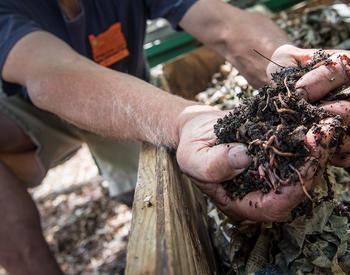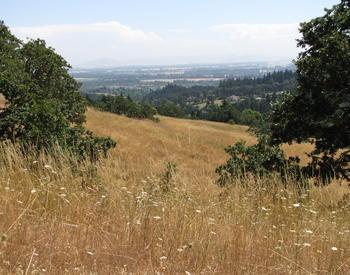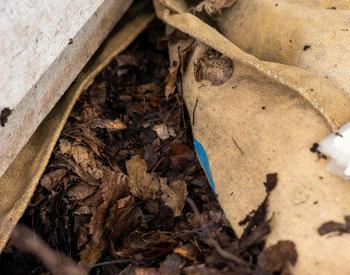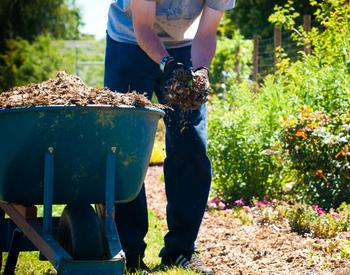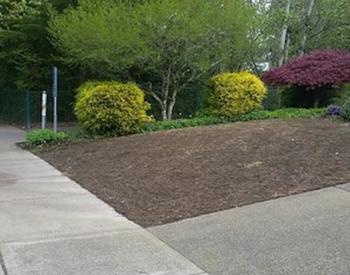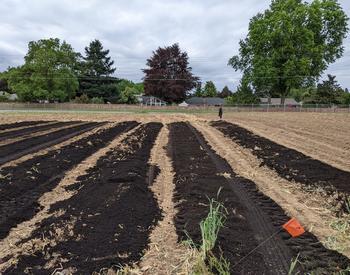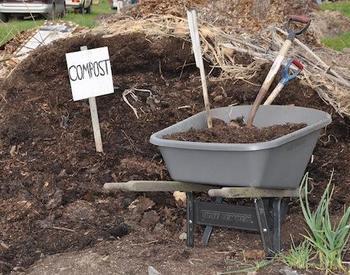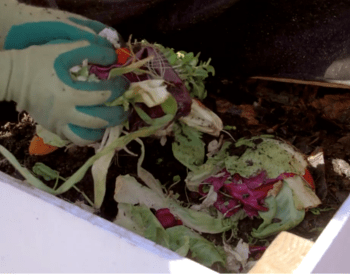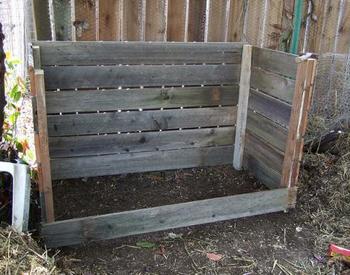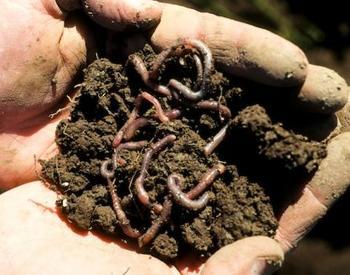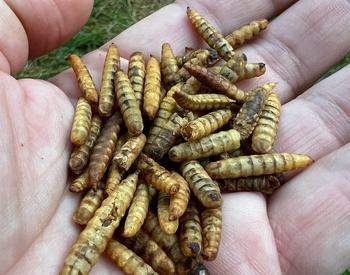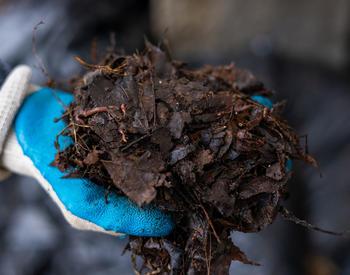CORVALLIS, Ore. – Many people enjoy traditional grass lawns. But others are thinking of getting rid of grass and choosing low-maintenance landscaping for their yards.
One option involves spreading mulch over ground you don't intend to plant.
When choosing mulch, "The coarser the better," according to Al Shay, an instructor in the Department of Horticulture at Oregon State University.
"We have a site at the Oak Creek Center for Urban Horticulture where we stripped out vegetation, like English ivy and added 3-4 inches of wood chips on top of cardboard on the soil," Shay said. "We haven't had a problem with weeds in three years."
Organic mulches help conserve water, reduce weeds, improve soil quality and enhance plant growth. Wood chips shade the soil to reduce weed germination and take a long time to break down.
Shay suggests selecting wood chips from hardwood tree species like oak or maple and advises using wood chips instead of bark dust.
To get started, weed and water the bare the ground where mulch will be applied. Optionally, you could first lay down one layer of cardboard or landscape fabric as an extra weed barrier underneath the mulch. Spread 2-3 inches of wood chips over the soil. Find wood chips from local arborists and lumber mills.
"Wood chips are readily available and this keeps them out of the waste stream,” Shay said. “You can minimize the time spent on managing weeds and add organic detritus to the soil. It's a low-maintenance, sustainable approach that makes sense."
If you don't want to use wood chips, Barb Fick, a horticulturist with OSU Extension, offered these alternatives:
- Leaves
- River rock
- Mint compost – compost from peppermint hay available from local farmers and some soil suppliers. The distillation process to extract peppermint oil also kills weed seeds, Fick said.
- Hazelnut shells – available from local orchards and some nurseries and soil suppliers in western Oregon. Looks attractive in pathways and stays in place. Not as available in eastern Oregon.
For more information, see the Extension guide Mulching Woody Ornamentals with Organic Materials.
